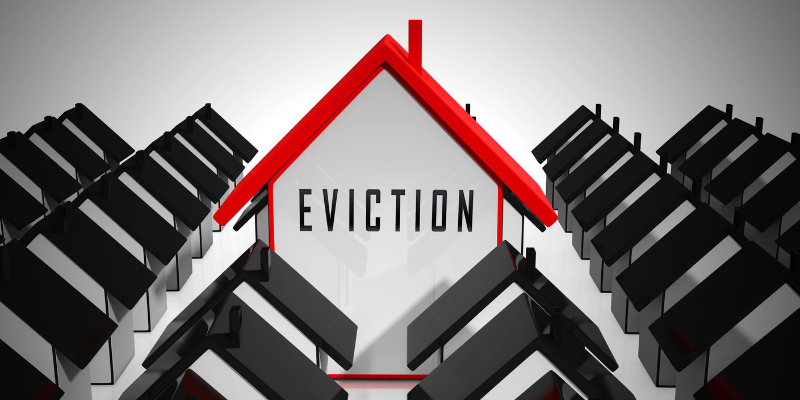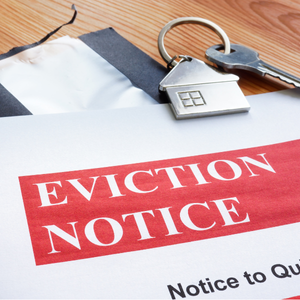
From initial notice to court proceedings and final resolution, this guide covers everything landlords can expect during eviction. Landlords can stay compliant and minimize disruptions by anticipating delays and timelines. Phoenix, AZ, landlords must understand the eviction process timeline due to changing laws. The A2B Invest team will help you protect your investments and maintain a smooth rental experience.
Brief Overview
Landlords must understand Phoenix’s eviction process to navigate the legal system. Knowing the main reasons for eviction helps landlords write accurate and timely notices, reducing disputes and delays. To ensure a smooth eviction, the guide emphasizes informed communication and legal compliance while balancing landlord and tenant rights. Informed and prepared landlords can maintain their property investments. A company that buys homes in Phoenix and nearby cities.
Key Highlights
• Understanding eviction timelines in Phoenix ensures compliance and reduces disruptions for landlords.
• Eviction complaints must accurately detail tenant violations for effective court proceedings.
• Arizona’s eviction process is expedited but requires a thorough legal understanding.
• Eviction notices must be clear, legally compliant, and promptly served to tenants.
• Balancing tenant rights and landlord duties is crucial for harmonious rentals.
Understanding the Eviction Process in Phoenix, Arizona
Phoenix landlords face a complicated eviction process. Understand this process to comply with Arizona law and protect property rights. Landlords should know common eviction reasons and how Arizona’s laws affect timelines and procedures. Understanding the local justice courts’ roles and legal complexities helps landlords handle eviction cases. Recognizing these elements prepares landlords for eviction actions, from filing a complaint to getting a Maricopa County eviction judgment.
Key Reasons for Eviction
Phoenix tenants can be evicted for lease violations and other reasons. When rent is late or never paid, evictions are common. Given the severity of rent disputes, the tenant and landlord must understand the lease.
The Arizona eviction process goes beyond rent nonpayment. Adding tenants or committing crimes in the rented property is grounds for eviction. Phoenix justice courts often hear landlords’ eviction complaints and specific violations. Eviction hearings are less contentious when landlords give a fair reason.
Eviction also follows lease termination or non-renewal. Non-renewable leases. A notice period set by Arizona law and the rental agreement is usually required to notify tenants. Tenants’ excessive wear and tear can cause property damage. Justice courts can help landlords recover property from uncooperative tenants. Knowing Phoenix’s eviction laws speeds up resolution and protects the landlord’s property and interests.
| Eviction Reasons | Legal Requirements | Role of Justice Courts |
|---|---|---|
| Non-payment of rent | Provide a 5-day notice for rent demand | Handles filing and review of eviction cases |
| Violation of lease terms | Issue a 10-day notice to correct the violation | Schedules hearings and issues judgments |
| Illegal activity on the premises | No prior notice required in some cases | Enforces rulings and coordinates with enforcement agencies |
| Holding over after lease expiration | Serve a notice requiring tenant to vacate | Facilitates mediation between landlords and tenants |
This table shows how Phoenix property managers must understand evictions and Arizona law.
Arizona’s Unique Eviction Laws
Arizona landlords must understand the Landlord and Tenant Act, which balances tenant rights and landlord duties. Justice courts handle lease violations and rent nonpayment efficiently, making the eviction process faster than in many other states.
Providing an eviction notice with specific content and timing is crucial. Non-payment of rent usually requires a five-day notice to vacate. To avoid eviction delays or dismissals, landlords should follow these steps.
Landlords must recognize tenant rights and non-discrimination during the process. The hearing begins with an eviction complaint, and following Arizona’s unique procedures ensures a smoother, legally compliant resolution while maintaining fair landlord-tenant relations.
The Role of an Eviction Notice
In Phoenix, Arizona, an eviction notice starts legal proceedings. This tool helps landlords legally reclaim their properties and inform tenants of their violations or overdue payments. Arizona law has strict notice periods and requirements for serving eviction notices. Professionally drafted eviction notices can reduce landlord-tenant disputes and streamline the eviction process.
When to Serve an Eviction Notice

Arizona requires fast eviction notices. When you deliver this notice can affect eviction speed and success. A tenant’s rent or lease default starts the eviction notice process. Most rent issues require a five-day notice to explain the tenant’s delinquency and its correction. In order to avoid delays, landlords must serve this notice within the Phoenix eviction laws’ timeframes for late rent.
Unauthorized subletting and property damage warrant eviction notices in addition to rent. Tenant breach notices are formalized here. Tenants have 10 days to fix issues or leave. Property owners must document these breaches for the court. It enhances the eviction notice and aids litigation.
To avoid violating tenant rights, Arizona landlords must be careful about the notice conditions. Serving an eviction notice improperly can lead to dismissals or court judgments. Landlords should consult lawyers for proper notices. This guide can help you write statutory eviction notices, simplifying the process.
Writing an Effective Eviction Notice
Eviction notices must be clear and legal. The notice must identify the tenant and property, specify the lease violation, such as non-payment of rent, and provide a clear record in case the eviction is contested.
It should also list the tenant’s options, such as paying arrears within a certain timeframe or leaving the property. Using clear language helps tenants understand the consequences of noncompliance and avoid legal issues.
Delivery matters too. Arizona law requires personal delivery, certified mail, or property posting. With legal advice, landlords can speed up the eviction process and avoid disputes by following legal requirements and respecting tenant rights.
Navigating the Court System in Arizona
Arizona landlords must understand the court system to resolve eviction cases quickly. The state’s justice courts handle landlord-tenant disputes and provide a structured eviction process. Landlords must understand court procedures and eviction court hearing timelines to navigate this system. By understanding these aspects, landlords can quickly resolve eviction complaints in Arizona’s courts, reducing stress and legal complications. We buy houses in Arizona and nearby cities.
Important Court Procedures for Eviction

A landlord files a formal complaint in justice court in Arizona to evict a tenant for lease violations and property reclaim. Legality and accuracy are crucial at this stage.
After filing, the court schedules a hearing for both parties. To resolve disputes before a formal judgment, landlords should bring leases and correspondence and consider mediation.
The judge rules after reviewing the evidence. A landlord-approved eviction order may be appealed, delaying the process. These procedures and legal advice help landlords successfully evict tenants and comply with Arizona law.
Timeline for Court Hearings
Tenant violations and court efficiency affect eviction hearing timelines. Arizona courts set eviction hearing dates after eviction complaints are filed. Because the complaint is usually heard within 10–20 days, landlords move through the court system faster than in other states. Lease violations and non-payment issues can be resolved quickly depending on the timeline.
During eviction, landlords must consider timing. If the court orders corrections, incorrect notice filing or service can delay the hearing. Property owners must follow Arizona law for eviction notices and court hearings. Court communications and case documentation are timely. Since Arizona streamlines evictions, diligence speeds hearings.
The tenant may appeal if the landlord wins the court case. Appeals can delay eviction, allowing the landlord to legally reclaim the property. Preparing for these timelines helps landlords manage expectations and plan around legal deadlines. Consult Arizona landlord-tenant lawyers to reduce disruptions and resolve evictions.
Arizona landlords should follow these steps to ease evictions:
• Understand Arizona’s eviction laws to avoid costly mistakes and ensure compliance.
• Keep detailed records of rental agreements, payments, and tenant communications.
• Ensure tenants receive clear, written notices within state-mandated timeframes.
• Completely document tenant violations using timestamps, photos, or witness statements.
• Ask a legal professional to review notices and ensure accuracy.
• Prepare for court hearings with necessary documentation and evidence.
• Communicate objectively and professionally with tenants from start to finish.
• Explore mediation as a peaceful dispute resolution option.
These steps can help landlords maximize eviction timeline efficiency and minimize legal issues.
Responsibilities and Tenant Rights
Understanding landlord and tenant rights in Phoenix, Arizona, is essential for property management and good rental relations. Both sides must balance their rights and legal obligations. These responsibilities help landlords comply with the law and evict tenants smoothly. Informed tenants can actively defend their rights. Balancing landlord duties and tenant protections reveals best practices for positive rental experiences and justice in every landlord-tenant interaction.
Tenant Protections and Landlord Duties

In Phoenix, Arizona, landlords must respect tenant rights and legal obligations. This includes keeping the property livable, fixing it quickly, and following the lease. Maintaining property protects the landlord’s investment, improves tenant relations, and reduces disputes.
Under the Arizona Residential Landlord and Tenant Act, tenants have privacy, a safe and clean home, and protection from eviction. To build trust and avoid disputes, landlords must give notice before entering, communicate rent or lease changes, and follow legal requirements.
During evictions, landlords must issue notices with clear grounds and follow timelines, while tenants can challenge claims in court. Following these rules ensures fair rental practices and improves landlord-tenant relations. To comply with Arizona law and navigate this process, legal advice is advised.
Knowledge of Arizona’s landlord-tenant laws will help you handle Phoenix evictions. Knowing each stage’s timeline can reduce delays and ensure fairness. Planning and legal compliance are essential for notice periods and court proceedings. Explore mediation, keep communication open, and seek professional advice to protect your investment. Download our comprehensive guide to simplify property management, and check our site for updates. Do you want more? Contact A2B Invest!
Need help with an eviction? A2B Invest guides you through the process smoothly and handles the details. Call us at (602) 888-1433 for a no-obligation consultation!”
FAQs
What is the eviction process timeline in Phoenix, AZ?
From eviction notice to court proceedings to final resolution, the eviction process has several steps. Understanding Arizona’s laws and each stage can help landlords avoid delays.
Why is understanding Arizona eviction laws important for landlords?
Lawful evictions in Arizona protect landlords’ investments and tenants’ rights. Knowledge of notice periods, eviction procedures, and legal consequences is required.
What are common reasons for eviction in Phoenix, AZ?
Evictions often result from lease violations, rent arrears, unauthorized occupancy, illegal activity, or significant property damage. Each reason requires legal notices and procedures.
How can Arizona landlords successfully evict?
An Arizona eviction notice must list the tenant’s violations, required actions, and a deadline. Avoid procedural delays by serving it by certified mail.
What do Arizona justice courts do with evictions?
Arizona justice courts schedule eviction hearings, hear cases, and issue eviction orders. Property owners must know court procedures and timelines to navigate the legal system.
Helpful Phoenix Blog Articles
• Successfully Selling A Probate House In Phoenix, AZ
• Selling Your Phoenix, AZ, Home During Foreclosure
• Selling Your Phoenix, AZ, Home By Owner Without A Realtor
• Guide To Selling A House With A Mortgage In Phoenix, AZ
• How To Successfully Sell A Home With Code Violations in Phoenix, AZ
• Selling A Home Needing Repairs in Phoenix, AZ
• Managing an inherited home with siblings in Phoenix, AZ
• Requirements for a Condemned House in Phoenix, AZ
• Capital Gains Tax After Selling a House in Phoenix, AZ
• How Long Does an Eviction Process Take in Phoenix, AZ
• Sell Home to Pay Off Debt in Phoenix, AZ
• Can the Executor of a Will Sell Property in Phoenix, AZ?
• Sell My House for Less Than Appraised Value in Phoenix, AZ

